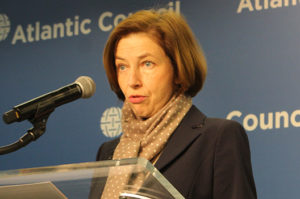
Europe must work to address its military capability gaps and continue to boost its defense spending to share some of the burden of protecting the continent with the United States, French Minister of the Armed Forces Florence Parly said March 18. “The Europeans have a hell of a homework in front of them if they want to stand on their own two feet and really share the burden with America, and France wants to be at the forefront of that…

 By
By 










